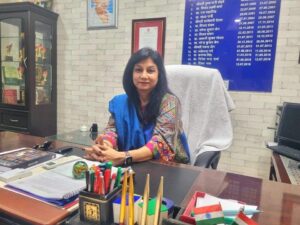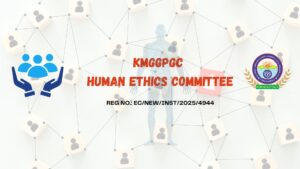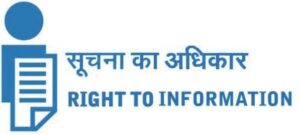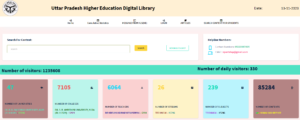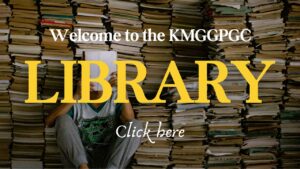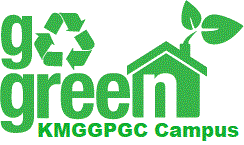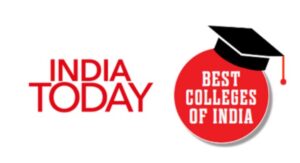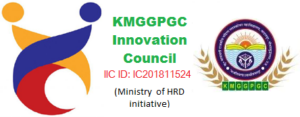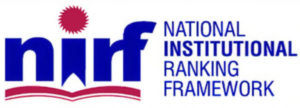Programme outcomes, Programme specific outcomes and course outcomes
B. A. (Bachelor of Arts)
- The B.A stream of education develops the ability to think critically, effective communication with the society or conduct research on the subject expert topic.
- B.A. stream helps the students get a fair idea on civic society, constitution, economic environment etc. & thus helps to develop minds of students towards creation of healthy society.
- As compared to other streams the B.A. stream develops the students towards creative writing abilities and thus creative communication of society keeps on enriching.
- Skills of Research are developed in students while pursuing B.A. program for those who pursue teaching carrier.
B. Sc. (Bachelor of Science):
- Students possess the knowledge to define, explain and demonstrate the major concepts in the biological and Physical Sciences.
- Students use proper laboratory techniques in biological Sciences and can determine the appropriate level of technology for use in: (a) experimental design and implementation, (b) analysis of experimental data and, (c) numerical and mathematical methods in problem solution.
- Students become able to communicate their scientific knowledge in oral , written and computational modalities
- Student also demonstrate ethical conduct in scientific activities.
- Students demonstrate the ability to read, understand and critically analysis of scientific information.
B.Com. (Bachelor of Commerce):
- The students become able to understand principles, concepts of Accountancy and tactics of marketing.
- They become able to learn the Banking Regulation Act.
- Besides that they understand the provisions of the Companies Act and Banking Regulation Act.
- They demonstrate the depth knowledge on the provisions and amendments of Income tax.
- Students will be able to explain the fundamental concepts of Auditing.
B. Ed. :
- The B.Ed. program gives the trainee teachers an overall view on how education should be imparted to the students and the ability to engage with different types of students to understand their ability of learning in various situations.
- B.Ed. program also trains the trainee teachers on the mode of communication with students with respect to teaching so that students can understand everything effectively like oral recitations, graphical presentations, quizzes etc.
- To develop the overall personality of the trainee teachers through curricular & extracurricular activities so that they can also work on all round performance of their students.
B.Voc: Airline, Tourism and Hospitality Management (ATHM)
- Students Apply learning in mathematics, science, applied sciences to aviation-related disciplines and Analyze and interpret aeronautical data.
- The course builds the student confident in making professional and ethical decisions, Work effectively on crews, multi-disciplinary and diverse teams and communicate effectively using both written and oral skills.
- B. Voc Course Develops professional skills and an insider knowledge of the tourism industry and helps them Understand tourism management aspects to respond to specific industry requirements in national and international context.
- Students learn about national and international travel, understanding the tourism environment, contemporary issues in tourism management and sustainable tourism management
- Students demonstrate the management and leadership challenges in tourism and hospitality industry.
- Students possess the knowledge to understand the psychology of employees and customers.
- The course equips them with the necessary tools to comprehend both the business and tourism aspects of the industry.
B. Voc: Medical Lab and Molecular Diagnostic Technology (MMDT)
- The course develops the competency to perform a full range of testing in the contemporary medical laboratory encompassing pre-analytical, analytical, and post-analytical components of laboratory services, including hematology, chemistry, microbiology, urinalysis, body fluids, molecular diagnostics, phlebotomy, and immunohematology.
- Students exhibit the Proficiency to problem-solve, troubleshoot, and interpret results, and use statistical approaches when evaluating data.
- The students understand Professional conduct, respecting the feelings and needs of others, protecting the confidence of patient information, and not allowing personal concerns and biases to interfere with the welfare of patients.
- Students acquire Administrative skills consistent with philosophies of quality assurance, continuous quality improvement, laboratory education, fiscal resource management, and appropriate composure under stressful conditions.
- The students develop Effective communication skill to ensure accurate and appropriate information transfer.
- Students learn application of safety and governmental regulations and standards as applied to medical laboratory practice.
- The course makes the students confident enough to Research, evaluate, implement, and monitor methods of collection, transport, and handling of various specimen types for molecular analysis, maintain a safe work environment and adhere to all safety regulations and display responsible conduct in research.
- The students Research, develop and implement preventive and corrective maintenance programs for equipment and assays, as well as troubleshoot and evaluate appropriate actions for problem resolution. They Design, conduct and disseminate correlations in molecular science and apply knowledge of molecular and genetic theory and principles as they relate to disease diagnosis.
M.Sc. (Zoology)
- Students gain knowledge and develop skill over animal sciences, understands the interactions among various living organisms.
- Students study animals of different phyla, their distribution and their relationship with the environment.
- Students understand the internal structure of cell, functions of various cellular organelles.
- They Understands the complex evolutionary processes and behavioral pattern of various animals.
- Students correlate the physiological and biochemical processes of animals.
- The knowledge of Agro based Small Scale industries like sericulture, fish farming, butterfly farming and vermicompost preparation is disseminated.
- They understand about various concepts of genetics and it’s importance in human health.
- They apply ethical principles and commit to professional ethics and responsibilities in delivering his/her duties.
- They apply the knowledge and understanding of Zoology to one’s own life and work.
- Develops empathy and love towards the animals.
- Understand the unity of life with the rich diversity of organism and their ecological and evolutionary significance.
- Students acquire basic skills in the observation and study of nature, biological techniques, experimental skills and scientific investigation.
M.A :
- Master’s degree makes the students Master of their chosen subject with command on all the aspects of the subjects
- Master’s degree can be used as a stepping stone before applying to doctorate level programs.
- Master’s degree helps the students to develop a reasonable & analytical approach towards development of new concepts
- As of Master of the subject, the students get more confidence on the subject & thus helps them to debate, discuss & convince other people on new thoughts & help the society get more view points on any subject.
Attainment of Programme outcomes, Programme specific outcomes and course outcomes
The process for the evaluation of the students in different subjects is as per the rules and regulations of the Chaudhary Charan Singh University, Meerut. The formal implementation of the Curriculum and the Process of measurement and evaluation of the students is monitored by the University Authorities, the internal administration of the college under the experienced supervision of our Principal. Our College promotes faculty members to organize Departmental Workshops, as well as motivates them to participate in the Seminars and Conferences of their specific areas. Moreover, they are also promoted to Write, Present and Publish Research papers and Research Articles in Standardized and Recognized Journals to achieve the desired leaning Outcomes successfully.
We know that internal assessment is the essential requirement of the Continuous Evaluation System and is must for the achievement of educational objectives. The college has its Internal Examination Committee that deals with the effective implementation of the evaluation reforms regarding the attainment of learning outcomes.
The committee in each academic session initiates some innovative steps like, Monthly Unit Tests, Surprise class tests, Field Survey, Educational excursions, Practical Work, Seminars etc. Besides, our college also tries to attain the educational outcomes by conducting various activities, such as Cultural participation, Unity and Discipline building exercise like N.C.C, Social awareness and welfare program like N.S.S., Career Counseling Programmes for Vocational guidance, Personality Development Programmes for all round enrichment, Communication Skills development programme for honing one’s personality, Various Collegiate and Inter-collegiate competitions for comprehensive participation and exposure, Organizations of Scholarly Lectures for Cognitive development ,Health Awareness Programs for physical fitness, participation in university level competition and youth festivals for adding values to students learning experiences, Life Skills Development Programmes because studies have shown that equipping individuals with life skills help them to make informed decisions, solve problems, think critically and creatively, communicate effectively, build healthy relationships, empathize with others, and manage their lives in a healthy and productive manner.
In addition to this, students are promoted for the creativity in Literature in the form of writing Articles, Poems and Essays etc. for the college Annual Magazine. Moreover, the huge playground of our college is used to organize Inter-departmental sports competitions by which we inculcate sportive skills among the students. Thus, the course outcomes and program outcomes are fulfilled through such activities.
In short, various conventional plus innovative and creative methods are used to measure and evaluate the attainment of programme outcomes by the institution. The overall result of the students are analysed and communicated to them with suggestions. The institute is regularly identifying the areas of strength and weaknesses of the students through the results of their internal and university assessment programme and providing them remedial treatment with the help of remedial classes.
“Last but not least, In addition to the above mentioned activities institution is effectively and efficiently following the Mentoring programme under which each teacher is providing personal guidance and counseling facilities to average number of thirty five students of their specific departments.

